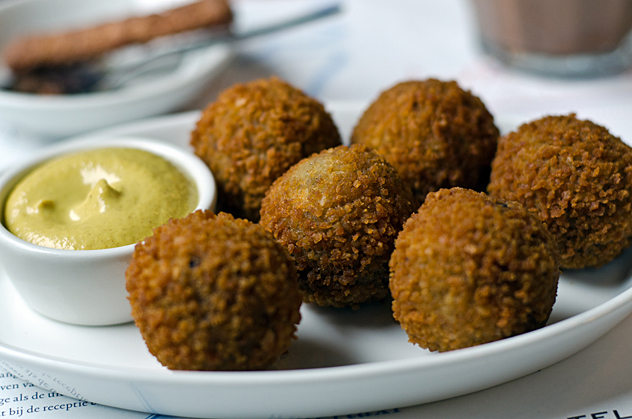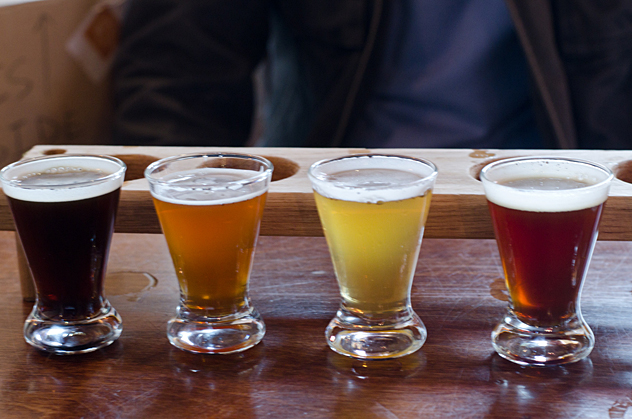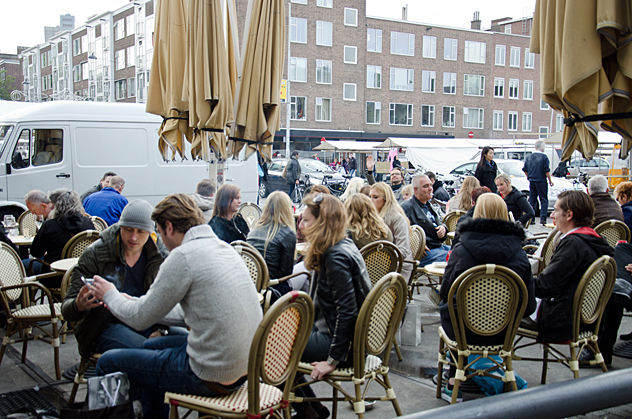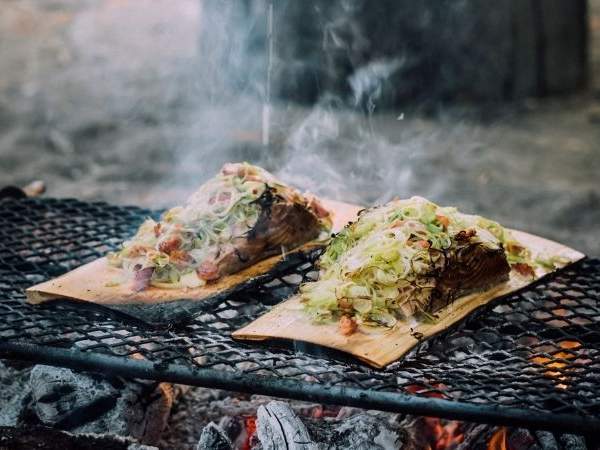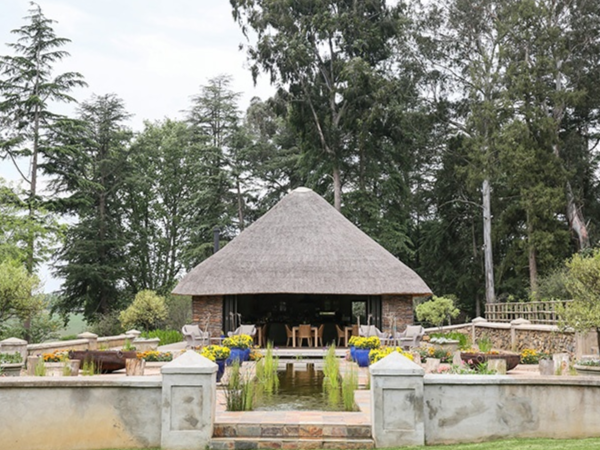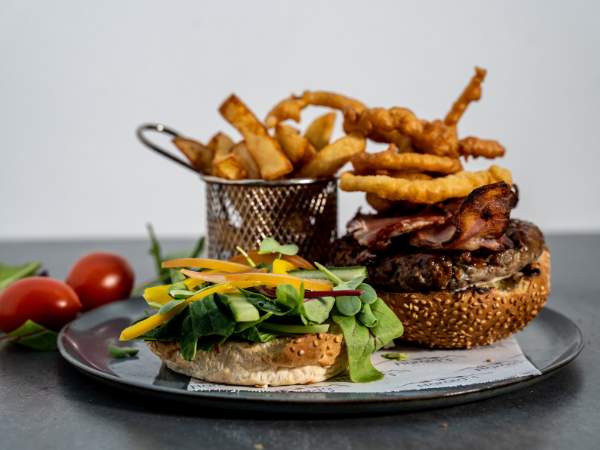News
A tasting tour of Rotterdam
Friday, December 6th, 2013After a boat ride along the river Maas in Rotterdam, the largest and busiest port city in Europe, I make my way to join a queue in front of a nearby snack bar. For €2.50, I’m handed a cone of hot, golden friet (fries) served with mayonnaise, satay sauce and finely chopped raw onions.
This particular Dutch favourite is known as patatje oorlog, or ‘war fries’. The satay sauce represents a prominent feature found in popular Dutch foods: an intermingling of cultures transplanted from the early days of exploration and colonisation.
A starting point: The Hotel New York
Today, Rotterdam is known as a relatively poor city by Dutch standards, but is a robust, multi-cultural mix of students, academics, artists and the working class. Even so, life in Rotterdam remains a far cry from 1896, when thousands of Europeans fled religious persecution and poverty via the city’s port to seek a new life in New York. The Hotel New York serves as memory to these emigrants as it was once the office building of the Holland-America line. Today, the Hotel New York it is highly regarded by the locals for its large restaurant, and is well-known for some of the best of a popular bar snack called bitterballen (a deep-fried croquette of shredded meat in a thick roux, served with mustard).
Ethnic diversity
The best vantage point to get a feeling for the food of the city is to visit the markets. The Central City market covers an entire block and it is here that you can sample poffertjes (tiny crumpets) with icing sugar, broodje haring (raw herring sandwiches), fresh stroopwafels (thin chewy biscuits sandwiched with thick toffee), friet, Chinese dumplings, loempia (spring rolls) and Surinamese breads – all an indication of the diversity of the city’s population.
The Afrikaanderplein market services the local ethnic populations, 25 % of whom are Muslim. Here you can find a variety of spices, vegetables and baked goods.
At Asian Glories, Jenny Fan Loh and her husband, who hail from Malaysia, run a lively restaurant based on Asian dishes, with the dim sum tasting menu being one of the most popular. It’s not uncommon to find the city’s chefs and those from nearby areas relaxing here on their days off. Jenny joins me after service with a glass of wine and a boisterous laugh, and shares about the journey that brought her family to Rotterdam. I gather that even though it’s hard to be so far away from beloved ones and an easy supply of her favourite ingredients, she and her family have integrated into the Rotterdam way of living.
New waves
The World Food Festival, which was recently held in the city, spanning one month, brought together some of the country’s best innovators, including chefs like Jonnie de Boer of Michelin 3-star De Librije, and renowned eating designer Marije Vogelzang. The Future Food House was built to give attendees an opportunity to reflect on the future of food, a concept from which many of us are far removed. Talks, films and sets that immersed the senses in old techniques and methods of food preparation popped up around the exhibition. This is where I first meet Vogelzang, to chat about her philosophy and visit to the Spier Secret Festival in Cape Town.
On the subject of the future of food, chef Jim de Jong caused quite a stir in the city when, at the tender age of 21, he opened his first restaurant, a bistro called Die Jonger de Jong. A few years down the line, with some hard lessons learned, he now runs a ‘bistronomy’ restaurant, simply called Restaurant de Jong, where his main speciality is herbs with vegetables. He is only 25 years old.
I opt for the vegetarian tasting menu and am impressed by the seaweed served with flowers and local leaves. “Every single day, I open my copy of Michel Bras’s Essential Cuisine,” says de Jong. The book pays homage to nature and one’s environment, clearly a philosophy adopted by de Jong.
Also of note is Paul van den Hoven, a former youth worker, who started a sausage and charcuterie business, Wild Vleesch, which operates from a fully kitted ship docked on a canal in the city.
“We have 174 different communities living in Rotterdam,” he tells me. “I enjoy cooking with them; you get to learn a lot. I make speciality sausages for restaurants in the city and have even experimented with a 150-year-old recipe for a fish sausage, under the guidance of historian Ryntje Biljardt.”
Fittingly, I leave his ship kitchen with a hefty smoked goose sausage that makes it all the way to Cape Town.
Looking back, it seems that Rotterdam, while it can never boast the appeal of picturesque Amsterdam, has the hundred-fold flavours of the world wrapped in one city.
Rotterdam must-dos:
- Blender: a bar and club with a very fine restaurant attached.
- Schmidt: for herring and other fish delights.
- Dudok: for the best apple pie.
- De Kaashoeve: for the best selection of cheese.
- De Pelgrim: the only craft brewery in the city (also visit the Pelgrim father’s church next door).
- Het Witte Huis: a trendy bar with rooftop views. It was once the highest building in Europe when it was built in 1898. Miraculously, it survived the bombings in World War 2.
- Witte de With Street: for the coolest variety of boutiques, restaurants, bars and grand cafes, from Iranian Bazar to NRC Grand Café and Vitu for Vietnamese food.



